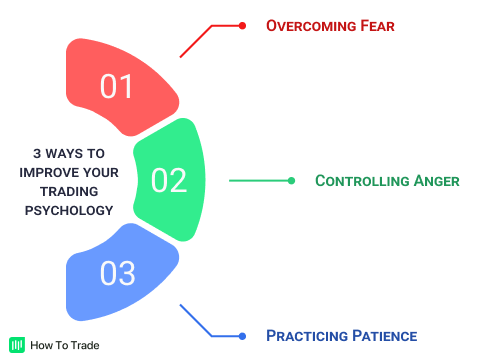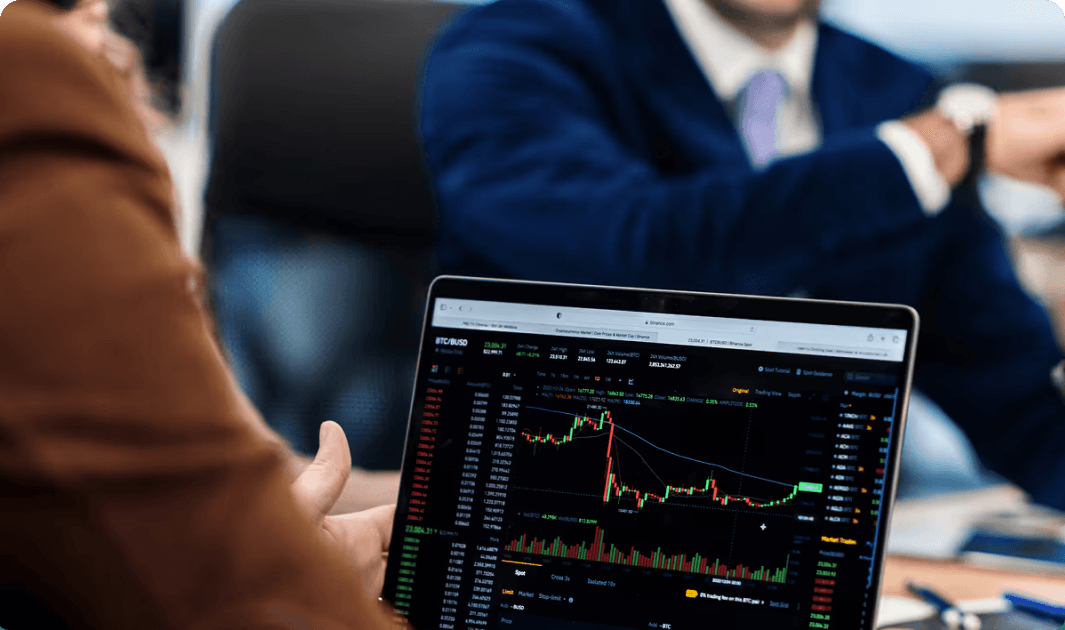Controlling Emotions That Hold Us Back
Let’s talk about facts. No matter how strong or level-headed you are, you have emotions. And naturally, these emotions can influence your behavior, thinking, and decision-making as a trader. All successful traders usually can control their emotions and achieve the mental toughness that makes them ‘market wizards’.
The truth is that controlling and managing your emotions when you’re in such a vibrant and dynamic market such as the forex market or stock market presents a number of psychological challenges. Remember all of these Forex trading psychology stimuli we discussed in the previous chapter? Fear, anger, impatience, and greed? All of these stimuli can lead to the deterioration of your perception of what is happening in the market if they are not dealt with properly.
In this lesson, we will take a closer look at some of the emotions that hold you back when you trade and help you get familiar with some of the most common reasons why most traders fail to achieve a successful trading career.

3 Ways to Improve Your Trading Psychology
As mentioned, some of the emotions that hold you back from becoming a successful trader include fear, doubt, and anger. Why is it important we address this? Trading psychologists and top traders believe that understanding your emotions can mentally prepare you to handle them better in your trading process.
Keeping that in mind, we’ll explore different areas from how these emotions manifest themselves in a trading experience, all the way through to what we can do to not let them get the better of us.
1. Understanding fear when trading financial markets
Fear. Or as trading experts call it, the trading performance inhibitor. It’s one of the emotions that exerts the most influence upon a trader’s performance in the financial markets and has been scientifically shown to “short-circuit” the trader’s decision-making processes involved in trading different markets.
Unless fear is properly addressed and dealt with, it can be the driver of emotional decision-making and directly responsible for preventing you from following your strategy and therefore losing on your trades. Now, that’s what I call the snowball effect. There are two main areas of fear, each with unique negative impacts on the trader’s performance.
These include fear of failure and fear of success.
- Fear of failure: Fear of failure associates personal self-worth with losing forex trades and therefore losing trading capital. It can result in an unwillingness to execute trades and the fear of even entering the markets.
- Fear of success: Fear of success is a bit more complex, as it deals with traders’ views towards achievement. Self-sabotage and giving back profits are performance detractors that arise from one’s fear of success.
Fear can overwhelm the trader after hitting many losing trades or after losing a trade larger than what they are emotionally ready to process. In such cases, you have to make sure you are not risking more money than you are okay to lose and you use a proper money management strategy.
If you are okay with losing the amount of money you have at risk, there is nothing to fear. Simple as that. And even though it’s pretty much impossible to get rid of fear completely, with some practice, you can learn to react and deal with it better. You will never succeed unless you try to do it – Knowing how to deal with fear is a key factor in becoming a profitable trader and making risk-taking trades.
2. Controlling anger when trading
Does trading make you angry? Do losing trades make you furious with yourself? Whatever your answer is, anger is an incremental part of our emotional build. It’s okay and it’s human to get angry. To an extent. Good traders know how to control their anger when trading stocks, currency pairs, or any other asset.
If you trade angry, it can cloud your perceptions and make you place trades based on emotions, rather than calculations. In other words, it ruins your trading plan. And when anger overcomes logic, you’re very likely to fail and lose focus.
For example, let’s say you risk too much money on a trade, and you end up losing it. There’s a good chance that anger gets ahold of you and you are now going to jump back into the market to try and make that money back. And this sort of behavior is something that mostly just leads to another loss (which is expected since you are trading emotionally again).
Some call it Revenge Trading. Placing trades without any logic behind it, just to seek revenge on the market. Why?
Seriously. Why?
The market doesn’t have anything against you – whether you win or lose. Be like the market. Don’t trade with anger and don’t trade to seek revenge. But instead, remain calm and stick to your trading plan. Consistency and risk management will take you further than anger and revenge trading. That’s how successful traders do it. You got this!
3. The ups and downs – The journey to trading success is long
The road to trading success can be achieved through mental exercises and realizing that there will be difficulties along the way. More accurately, you’ll have to learn how to survive the ups and downs of trading and use these trend reverses to your benefit. You can turn them to your advantage by thinking clearly and not letting your emotions control you.
One thing you need to take into consideration – trading is not a stable income or profession. Even top traders face losing days, weeks, and months. It’s a zero-sum game and it is impossible to win all trades, simply impossible. From my experience, I noticed that many successful traders don’t get too excited when they have a bad trading day. Many of these different traders know they can have a big win on the next trading day or in the next month. As long as you know how to manage your risk properly and you understand financial market behavior – there’s no reason why you can’t become one of these top traders who know how to make consistent profits over the long term.
The first step in gaining a trading mindset involves mastering your own emotions. That’s because emotions play a huge role in decision-making in forex trading, which means you must control the ‘bad’ emotions. Once you step beyond yourself a little and look at trading objectively, you’ll have a better chance to survive… Don’t get too excited by a losing trading day. Instead, learn another technical analysis tool, increase your basic skills, and come back with new insights and a better trader.
Key takeaways
Controlling emotions in trading has always been the most difficult challenge in becoming a successful trader. To achieve this, you need to educate yourself and increase your knowledge with trading coaches, trading psychology books, market research, etc. A very popular trading book that we recommended is ‘Trading in the Zone: Master the Market with Confidence, Discipline, and a Winning Attitude’ by Mark Douglas. Another excellent audiobook is The Daily Trading Coach by Brett N. Steenbarger.
Then, once you are ready to jump into the markets, open a demo account and get access to the forex and stock market with virtual money. When you feel ready, make a small deposit and start your trading career. Remember – fear, doubt, and anger – you need to beat them to succeed not only in life but also in trading.

